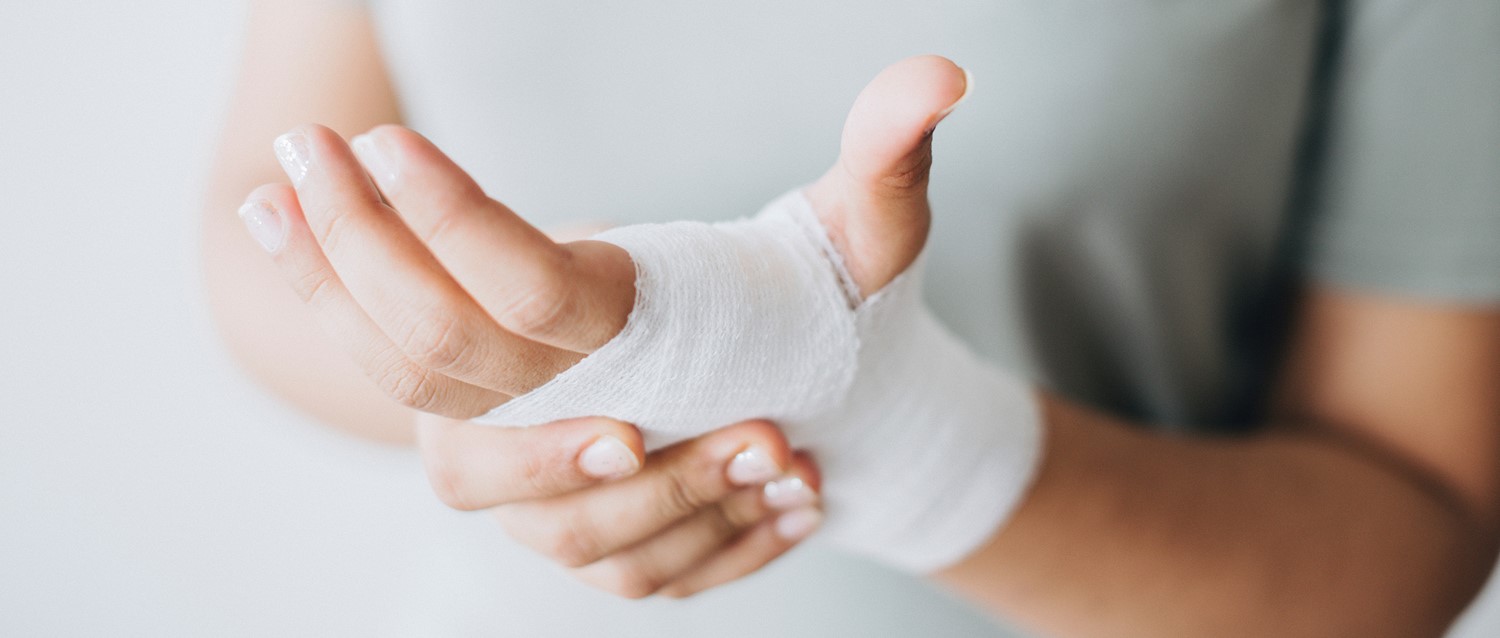
Is cracking your joints dangerous?
Peer reviewed by Dr Sarah Jarvis MBE, FRCGPLast updated by Andrea DowneyLast updated 12 Nov 2020
Meets Patient’s editorial guidelines
- DownloadDownload
- Share
- Language
- Discussion
You've probably heard the old saying that cracking your joints gives you arthritis - but is there any truth in it? The truth is all our joints can crack naturally on their own, so it's not as dangerous as you might think.
In this article:
Video picks for Joint health
Dr Daniel Murphy of charity Versus Arthritis, and osteopath Hannah Williams, owner of Burton Joyce Osteopathy, explain why our joints crack and if it's safe.
Continue reading below
Snap, crackle, pop
You might think the reason our joints crack is bone rubbing against bone, but it's actually caused by gases within the fluid of our joints.
Our joints contain a sac of fluid called synovial fluid. This is found in our synovial joints, a type of joint where bones rub together - think knees, shoulders and hips. The fluid protects the bones from grinding against each other causing lasting damage.
It also contains the gases oxygen, nitrogen and carbon dioxide. When you crack your knuckles the sound you are hearing is gas bubbles escaping from the synovial fluid.
The movement of your joints, tendons and ligaments can also cause popping sounds. This happens when a joint moves and causes the tendon to change position; it may make a snapping sound when it pops back into place.
You may also hear, or feel, clicking or grating when you move your head. Don't panic, it's actually quite normal and referred to in the medical world as crepitus. It can be caused by air bubbles popping, or tissues and bones moving over each other, in your neck joint just like in other joints. But the reason you hear this more clearly is simply because it's happening closer to your ears.
Danger zone
Back to contentsIt may sound worrying, especially to those who are squeamish, but there isn't much evidence to suggest cracking your joints is dangerous, our experts say.
And does it cause arthritis? According to Dr Murphy there's not much evidence to suggest it does.
"There isn't much research on the link; however the question is often asked about cracking the joints in the fingers, particularly the knuckle joints," he says. "The best study so far suggests that cracking your knuckles doesn't increase the risk of arthritis, although we can't say this for certain."
A 2001 study published in the Journal of the American Board of Family Medicine found habitual knuckle cracking "does not seem to be a risk factor for hand osteoarthritis".
Williams agreed, adding that cracking a joint is generally not dangerous as long as the joint is healthy and it doesn't cause pain to do so.
"It's a myth that this damages the joint and causes arthritis; however, it is possible that repetitive manipulation of the same joint could eventually result in the joint becoming hypermobile or unstable, which may cause problems," she says.
Continue reading below
A bigger risk for some
Back to contentsWhile for most of us cracking our joints is relatively safe (although everything in moderation) there are some who are more at risk from serious complications.
"Cracking joints is relatively safe; however, cracking joints in the spine and neck can, in rare instances, cause some serious issues," Dr Murphy says. "It can damage the vertebral discs between the bones of the spine, cause damage to the spinal cord or cause damage to the major blood vessels which run between the bones of the neck to our brains."
Dr Murphy says suggests anyone with a history of strokes, injuries to their neck, or problems with blood vessels, people taking blood-thinning medication, and people with arthritis should avoid cracking their back and neck. The same rules apply when seeing a professional to manipulate your neck and back, Dr Murphy adds.
Williams says: "Most joints in the body can be manipulated, but most commonly in practice it's a technique used on the spine. It often happens naturally as we move around so if you roll over in bed and hear a few clunks, it's generally nothing to worry about."
There are conditions which mean spinal manipulation is not appropriate, she adds, including:
Fracture.
Severe arthritis.
Osteoporosis or bone fragility.
Disc herniation.
Joint instability or hypermobility.
High blood pressure or cardiovascular disease.
Cancer.
Certain medications and neurological conditions can also increase risk when cracking your back, so it's best to seek professional treatment.
Go pro
Back to contentsIf you suffer from pain and feel you need to crack certain parts of your body to relieve it, especially in your back and neck, then it's best to see a professional. Cracking your own knuckles is relatively safe but you could cause serious damage if you crack your neck or back on your own.
"As a medical physician I would, in general, not recommend manipulation or cracking of the joints to help treat spinal pain," Dr Murphy says.
In fact, the National Institute for Health and Care Excellence (NICE) suggests manipulation of joints and muscles should only be used alongside exercise (including physiotherapy), pain relief and weight loss to help manage symptoms.
"We do know, though, that some people do find that their pain is helped by back or joint manipulation. If people wish to try this form of treatment I would always recommend that they get advice from a registered chiropractor or osteopath." Physiotherapists are also experts in musculoskeletal issues and some use hands-on manual therapy.
Williams agrees, adding that osteopaths and chiropractors are trained to spot when joints, or the spine, can and cannot be manipulated. She explains that the upper spine contains delicate arteries and nerves, making it an area to be cautious about manipulating.
Disc herniations, a common cause of lower back pain, also should not be manipulated so it's best to speak with a qualified practitioner if you're experiencing pain in that area.
"With the above in mind, it is vital that you see a trained professional for these types of treatments as they are slightly stronger techniques and therefore do carry some risk if used in the wrong circumstances or performed incorrectly," Williams says.
"Professionals such as osteopaths and chiropractors are highly trained in diagnostics and will thoroughly screen all patients prior to any hands-on treatment to ensure this never happens."
Patient picks for Joint health

Bones, joints and muscles
Best exercises for your joints
You may have concerns about the impact exercise has on your joints, especially if you already have joint pain or stiffness. However, regular physical activity can be helpful in protecting healthy joints and even for relieving joint pain in some cases. The key is to choose exercises that are low-impact, improve flexibility, and build up the muscles around the joints. Here we chat to fitness expert, Laura Williams, about what the best exercises are for your joints.
by Heather Ainsworth

Bones, joints and muscles
Simple methods for joint pain relief
Joint pain is a very common problem. And curiously, we always get a surge of visits asking about joint pain when warm weather finally comes. I used to wonder why, but these days I'm only too aware of how easy it is to strain my joints.
by Dr Sarah Jarvis MBE, FRCGP
Continue reading below
Article history
The information on this page is peer reviewed by qualified clinicians.
12 Nov 2020 | Latest version

Ask, share, connect.
Browse discussions, ask questions, and share experiences across hundreds of health topics.

Feeling unwell?
Assess your symptoms online for free
Sign up to the Patient newsletter
Your weekly dose of clear, trustworthy health advice - written to help you feel informed, confident and in control.
By subscribing you accept our Privacy Policy. You can unsubscribe at any time. We never sell your data.